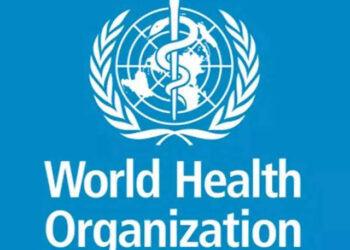Association of Women Living With HIV and AIDS in Nigeria (ASWHAN) has appealed to Nigeria Police Force, National Agency for the Prohibition of Trafficking in Persons (NAPTIP), human rights experts, and the media to step up efforts to protect and mitigate violence against vulnerable women and men in the society.
The program is funded by UNDP through spotlight initiative. Spotlight initiative is a global multi year partnership between the European Union and the united nations to eliminate all forms of violence against women and girls.
Aswhan is collaborating with UNDP through spotlight initiative and the Nigerian Police force to end all forms of Gender based violence and Gender discrimination.
ASWHAN said such measures will help safeguard the welfare of vulnerable persons worldwide who may be more exposed to violence, sale, trafficking, sexual abuse and exploitation amid the COVID-19 pandemic.
Speaking during a one-day sensitization meeting with Nigeria police and media, in Abuja yesterday, the national coordinator of the association, Asumpta Reginald decried the rise in gender-based violence (GBV) in the country.
Assumpta, who was represented by the assistant national secretary, Helen Afam explained that the essence of the gathering was to sensitize the law enforcement agency and also relevant stakeholders on steps to protect vulnerable persons and as well halt gender-based violence.
She said, “The rise in GBV cases is something we have never imagined, because, for some time, we have been hearing about rape, sex, but now, it has escalated to a manner that we can not easily control.
“Since the association cannot do it alone, that is why it decided to collaborate with law enforcement agencies who can prosecute perpetrators. We need to speak out for those who cannot speak for themselves.
“Whenever the issue of rape or GBV comes up, the first place to go is the police station and if the police is not equipped with rightful information on how they could manage the case, we won’t be making progress to avert GBV menace, and that is the reason this gathering is very important.”
Also speaking, the national coordinator Network of the People Living with HIV and AIDS in Nigeria (NEPWHAN), Abdul Kadir Ibrahim, lamented that a lot of people are not aware of how to report cases of sexual violence when it happens to people around them or at the grassroots level.
He said, “As partners, we are looking to strengthen and also mobilise community people and empower them with the right knowledge so that they can get out of that illiteracy gap.
“Police are the principal partner on this issue because when such things happen, the first contact is police before thinking of approaching human rights commission or lawyers, that is why we are here to educate them and have the feelings of community people.”
Ibrahim added that the fight against gender-based violence is not limited to the police alone, because it is everybody’s business.








